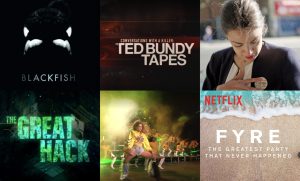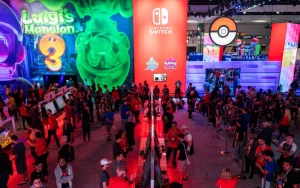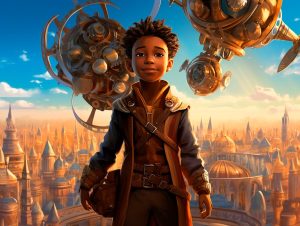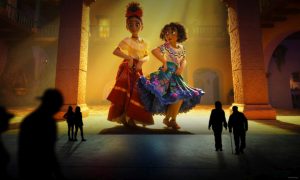
Introduction
Indie films have been gaining significant attention, with Netflix becoming a prime platform for showcasing some of the most creative and compelling storytelling from around the world. These movies often differ from mainstream Hollywood blockbusters, offering unique narratives, experimental filmmaking styles, and a fresh perspective on various themes. In this article, we’ll take a look at the 10 best indie movies on Netflix that should be on every movie lover’s watchlist.
The Rise of Indie Movies on Netflix
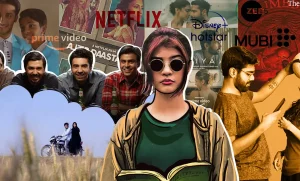
In recent years, indie movies have become increasingly popular on Netflix. These films are often made on smaller budgets, allowing filmmakers to experiment with fresh ideas and unique storytelling. Streaming platforms like Netflix have provided a space for indie films to reach a global audience, bypassing traditional distribution methods like theaters. This has led to a rise in the number of independent films available for viewers to enjoy.
Growing Popularity of Indie Movies
The popularity of indie movies on Netflix is likely to keep growing. As more people move away from traditional movie theaters and seek entertainment at home, streaming platforms like Netflix will continue to be a key player in the film industry. As a result, more indie filmmakers will have the opportunity to share their work with a wider audience. This will lead to even more creative and interesting films for viewers to enjoy, ensuring that indie cinema will have a strong presence in the future.
The Benefits of Indie Movies on Netflix
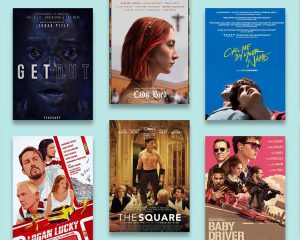
Indie movies on Netflix offer several advantages. They provide fresh and diverse perspectives that you may not find in big Hollywood blockbusters. These films often explore more personal, emotional, and complex topics, giving audiences a chance to experience new and meaningful stories. With Netflix’s easy access, viewers can watch these films from the comfort of their own homes, making it easier to explore the world of indie cinema.
The Role of Indie Movies on Netflix
Indie movies play a crucial role in the film industry, especially on streaming platforms like Netflix. They introduce innovative ideas, push boundaries, and help showcase talent that might not get a chance in mainstream cinema. These films bring unique voices and diverse stories to the forefront, offering a break from the usual formulas of big-budget films. Indie movies on Netflix help bring a variety of genres, cultures, and themes to a wider audience.
Top 10 Best Indie Movies Netflix
1. The Half of It (2020)

Genre: Drama, Romance
Directed by Alice Wu, The Half of It reimagines the classic story of Cyrano de Bergerac with a modern twist. This coming-of-age indie movie explores themes of love, friendship, and self-discovery. The story follows Ellie Chu, a shy high school student who helps a classmate write love letters to a girl named Aster. However, Ellie ends up developing feelings for Aster herself. The film’s nuanced approach to relationships and its beautiful cinematography make it standout.
2. The Florida Project (2017)

Genre: Drama
Directed by Sean Baker, The Florida Project is a heartbreaking yet hopeful exploration of childhood innocence amidst poverty. The story revolves around six-year-old Moonee and her mother, who live in a budget motel near Disney World. Despite their tough circumstances, Moonee’s playful antics and her bond with her friends add layers of warmth to this otherwise gritty portrayal of life on the margins.
3. Paddleton (2019)

Genre: Drama
This indie drama, starring Mark Duplass and Ray Romano, delves into the touching friendship between two men facing a terminal illness. The film focuses on their emotional journey as they navigate the difficult process of saying goodbye. Paddleton explores themes of grief, friendship, and mortality with sincerity and humor. It’s a moving testament to the value of human connection during life’s most challenging moments.
4. Marriage Story (2019)

Genre: Drama
Noah Baumbach’s Marriage Story is a raw and deeply emotional film that offers a look at the dissolution of a marriage. Featuring powerful performances from Scarlett Johansson and Adam Driver, the film examines the intricacies of love, loss, and the complexities of relationships. Marriage Story showcases Baumbach’s brilliant storytelling, making it one of the best indie films on Netflix.
5. I Don’t Feel at Home in This World Anymore (2017)

Genre: Crime, Thriller
This dark comedy, directed by Macon Blair, stars Melanie Lynskey as Ruth, a woman who becomes fed up with the apathy around her. After her home is robbed, she embarks on a quest for justice that spirals into a chaotic and thrilling adventure. The film’s quirky characters and unique take on the crime genre make it a standout indie movie worth watching.
6. Beasts of No Nation (2015)

Genre: Drama, War
Directed by Cary Joji Fukunaga, Beasts of No Nation is a harrowing story of a young boy named Agu, who is forced to join a rebel army in an unnamed African country. The film explores the brutal realities of war and child soldiers, offering a visceral experience. Idris Elba’s performance as the brutal leader of the group adds another layer of intensity to this powerful indie film.
7. The Station Agent (2003)

Genre: Drama
Tom McCarthy’s The Station Agent is a quiet yet profound exploration of loneliness and friendship. The story centers on Finbar McBride, a man who seeks solitude in an abandoned train station after the death of his friend. Through his interactions with quirky characters, Finbar begins to confront his past and open himself up to the possibility of connection. This understated film shines with heartfelt performances and subtle storytelling.
8. Lady Bird (2017)

Genre: Drama, Comedy
Greta Gerwig’s directorial debut, Lady Bird, is an emotionally resonant and witty portrayal of adolescence. The film follows Christine “Lady Bird” McPherson, a high school senior who navigates the ups and downs of growing up in Sacramento. With a stellar performance from Saoirse Ronan and strong supporting roles from Laurie Metcalf and Tracy Letts, Lady Bird is a modern indie classic that resonates with audiences worldwide.
9. Mud (2012)

Genre: Drama
Directed by Jeff Nichols, Mud stars Matthew McConaughey as a fugitive named Mud who befriends two young boys while on the run. The film is a heartfelt coming-of-age tale that also explores themes of love, loyalty, and redemption. McConaughey’s captivating performance elevates this slow-burn drama into an unforgettable experience.
10. The Art of Racing in the Rain (2019)

Genre: Drama, Family
Based on Garth Stein’s bestselling novel, this film tells the story of Denny Swift, a race car driver, and his beloved dog Enzo. Through Enzo’s narration, the film offers a unique perspective on life’s struggles, the power of perseverance, and the importance of family. The Art of Racing in the Rain is both heartwarming and tearjerking, making it an excellent indie movie for animal lovers and drama fans alike.
Indie Movies Bring Fresh Ideas
One of the main reasons indie movies are so popular is that they bring fresh ideas to the table. Unlike big-budget films that often follow the same formulas, indie movies are more willing to take risks. They explore new topics, use different storytelling styles, and sometimes experiment with visuals. This makes them stand out and offer something unique for people who want to see something new and exciting.
Indie Movies Show Talent
Indie movies are a great place for new and upcoming filmmakers to showcase their talent. Many filmmakers who start with indie films eventually go on to direct bigger projects. Platforms like Netflix give these filmmakers the chance to reach a global audience. For actors, directors, and writers, indie films can be an important step in building their careers and getting noticed by larger studios.
The Challenges of Indie Movies on Netflix
Despite their growing popularity, indie movies on Netflix face challenges. One of the biggest issues is the difficulty in getting noticed among the vast amount of content available. With so many options, indie films often struggle to gain the attention they deserve. Additionally, some filmmakers face financial constraints, limiting the scope of their films. It can also be difficult to build a fanbase, especially for smaller or lesser-known films, as they don’t always have the marketing power that bigger productions do.
The Future of Indie Movies on Netflix

The future of indie movies on Netflix looks bright. As the platform continues to grow, more independent films are likely to find a home there. With an increasing demand for fresh and diverse content, Netflix will continue to support and promote indie films. This means that viewers can expect even more exciting, unique, and thought-provoking movies in the years to come, giving filmmakers the opportunity to reach wider audiences and explore new creative possibilities.
Analysis of Indie Movies on Netflix
The following table provides a comparison of the 10 best indie movies on Netflix in terms of genre, themes, and performances.
| Movie Title | Genre | Main Theme | Key Performance | Release Year |
|---|---|---|---|---|
| The Half of It | Drama, Romance | Love, Friendship, and self-discovery | Leah Lewis, Daniel Diemer | 2020 |
| The Florida Project | Drama | Childhood, Poverty, Innocence | Brooklynn Prince, Bria Vinaite | 2017 |
| Paddleton | Drama | Friendship, Grief, Mortality | Mark Duplass, Ray Romano | 2019 |
| Marriage Story | Drama | Marriage, Divorce, Relationships | Scarlett Johansson, Adam Driver | 2019 |
| I Don’t Feel at Home in This World Anymore | Crime, Thriller | Justice, Alienation, Chaos | Melanie Lynskey, Elijah Wood | 2017 |
| Beasts of No Nation | Drama, War | War, Child Soldiers, Survival | Abraham Attah, Idris Elba | 2015 |
| The Station Agent | Drama | Loneliness, Friendship, Isolation | Peter Dinklage, Patricia Clarkson | 2003 |
| Lady Bird | Drama, Comedy | Adolescence, Identity, Family | Saoirse Ronan, Laurie Metcalf | 2017 |
| Mud | Drama | Coming-of-age, Loyalty, Redemption | Matthew McConaughey, Tye Sheridan | 2012 |
| The Art of Racing in the Rain | Drama, Family | Love, Perseverance, Family | Milo Ventimiglia, Kevin Costner | 2019 |
Conclusion
Netflix offers a rich array of indie movies that capture the essence of storytelling through fresh, emotional, and thought-provoking narratives. Whether you are drawn to deep dramas, heartfelt comedies, or gripping thrillers, there is something for everyone in the indie film world. The movies mentioned in this guide reflect the diversity and creativity that indie cinema brings, making them essential watches for anyone seeking more than just mainstream entertainment





















